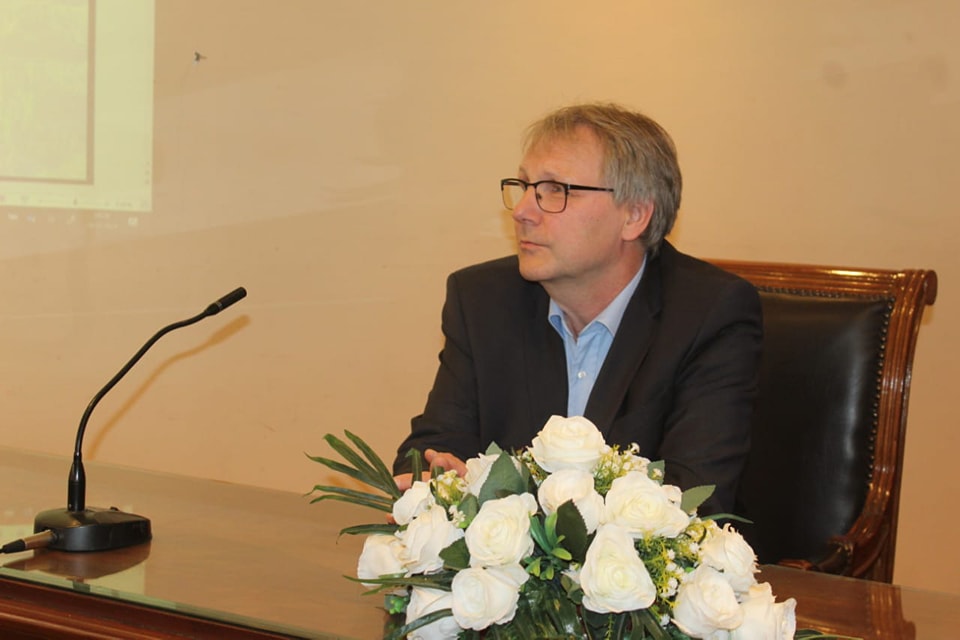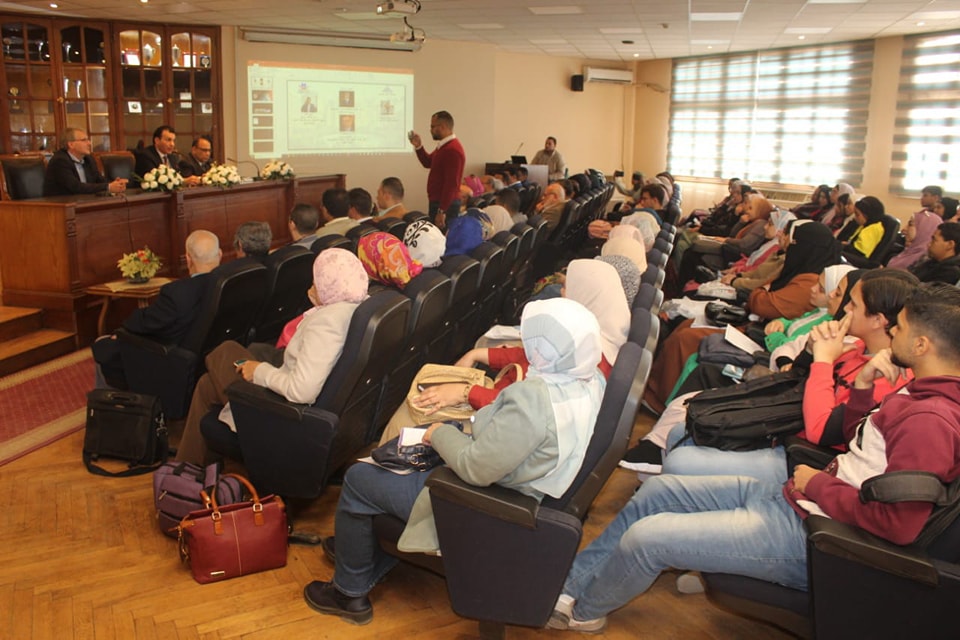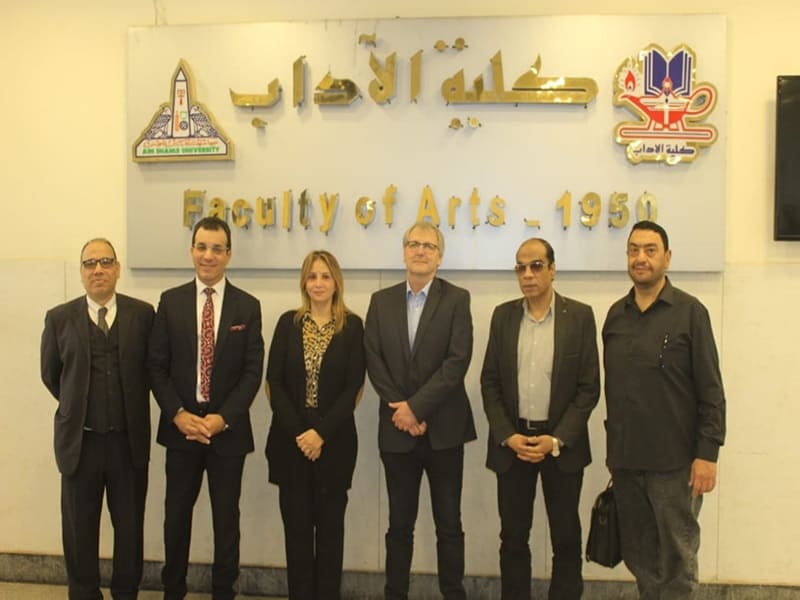The Faculty of Arts hosts Prof. Olaf Pobenzer, Head of the Geography Department and the Environmental Research Center at the University of Heidelberg in the Federal Republic of Germany
The Faculty of Arts, at Ain Shams University, represented by the Graduate Studies and Research Sector, organized a symposium entitled “Current and Future Trends in Dry Land Geomorphology,” under the auspices of Prof. Mohamed Diaa Zain El- Abedeen, President of the University, Prof. Ghada Farouk, Vice President of the University for Community Service and Environmental Development Affairs, Prof. Hanan Kamel Metwally, Dean of the Faculty of Arts, and under the supervision of Prof. Hatem Rabie, Vice Dean of the Faculty for Postgraduate Studies and Research, and coordinated by Prof. Moawad Badawi Moawad, Head of the Department of Geography and Geographic Information Systems.
During the scientific symposium, the Faculty of Arts and the Department of Geography and Geographic Information Systems hosted Prof. Olaf Pobenzer, Head of the Department of Geography and the Environmental Research Center at the University of Heidelberg in the Federal Republic of Germany, within the framework of hosting him as a visiting professor for the Department of Geography and Geographic Information Systems at the Faculty of Arts, at Ain Shams University.
The symposium opened with a speech by Prof. Hatem Rabie, Vice Dean of the Faculty, then presented to the visiting professor and the topic of the lecture, which was moderated to Prof. Moawad Badawi Moawad, Head of the Department of Geography and Geographic Information Systems.
Prof. Olaf Pobenzer began his lecture by asking the attendees some questions about their observations regarding the current environmental changes surrounding us, while highlighting the scale of the problem globally and regionally.
The lecture discussed current and future trends used in geomorphological studies in arid (dry) lands, using special research examples from different regions such as Egypt, Morocco, Namibia and Chile.
 |
 |
During which Prof. Olaf Pobenzer confirmed that Egypt is the undisputed land of sand dunes, as sand shapes cover large areas of Egyptian territory, and Egypt is represented by all types of sand dunes without exception, which makes it one of the most attractive countries in the world for conducting specialized research and studies, as well as studying ways to confront dunes and reduce their dangers to human activities.
During the lecture, Prof. Olaf Bubenzer presented several different research models for important topics such as drought, sand dune movement, soil moisture, slope movement, and other precise, specialized topics.
As confirmed by Prof. Olaf Pobenzer, that the role and importance of modern spatial technologies (geomatics) in current and future studies, such as the use of remote sensing technologies, geographic information systems, ground-borne radar, laser scanning devices, land surveying, etc., in order to accurately understand geomorphological processes and environmental changes in arid landsو especially since they are new research methods and advanced methods that provide results with unprecedented temporal and spatial accuracy.
At the conclusion of his lecture, Prof. Olaf Pobenzer emphasized the importance of combining detailed microstudy and comprehensive studies, which enable us to better understand terrestrial systems and biosphere changes in arid lands, and their role in contemporary global climate changes, as well as the role of man and his contribution to the magnitude of these changes due to his ill-considered intervention in such as these fragile environments.
The lecture concluded with some questions and inquiries from the attendees, and Prof. Olaf Bubensberg donated one of his most important books to the faculty library, entitled: Atlas of Civilization and Climate Change in Drylands in Africa, written in German and English with Arabization.
Finally, Prof. Moawad Badawi Moawad, Head of the Department of Geography and Geographic Information Systems, thanked Prof. Olaf Bubenzer for accepting the request to host him as a visiting professor for the Faculty of Arts, stressing the depth of the mutual relations between the Department of Geography and Geographic Information Systems at the Faculty of Arts, and the geography departments at the Universities of Cologne, Heidelberg, and Mainz in the Republic of Germany, and this is a desire of the faculty staff and researchers in these prestigious departments to continue joint scientific and research cooperation in the fields of specialization.


.svg)




